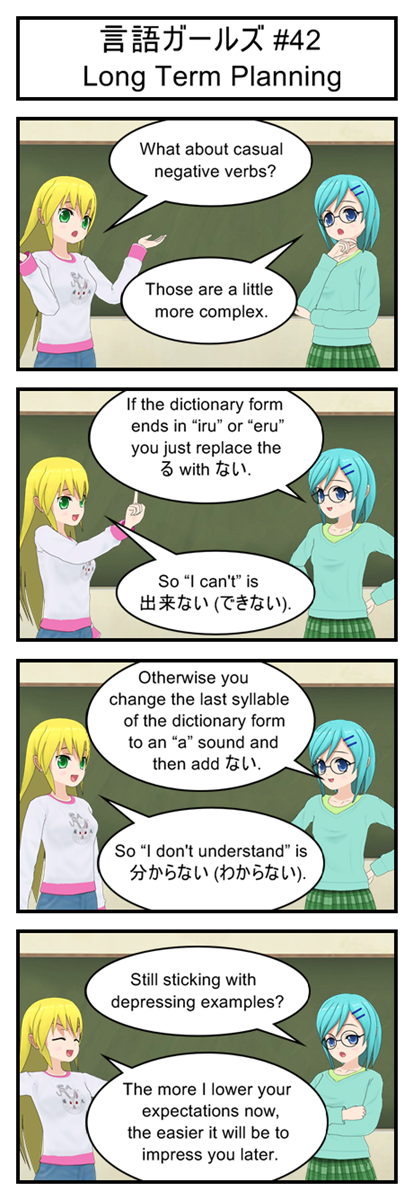
You might have noticed that the rules for casual negatives are a lot like the rules for positive polites. Words ending in “iru” or “eru” get a simple replacement while all other words have to be slightly transformed before getting their new ending.
The big difference is that in polites you transform sounds to “i” (ru becomes ri, su becomes shi, etc…) while in casual negatives you transform sounds to “a” (ru becomes ra, su becomes sa, etc…).
Transcript
言語ガールズ #42
Long Term Planning
Yellow: What about casual negative verbs?
Blue: Those are a little more complex.
Blue: If the dictionary form ends in “iru” or “eru” you just replace the る with ない.
Yellow: So “I can’t” is 出来ない (できない).
Blue: Otherwise you change the last syllable of the dictionary form to an “a” sound and then add ない.
Yellow: So “I don’t understand” is 分からない (わからない).
Blue: Still sticking with depressing examples?
Yellow: The more I lower your expectations now, the easier it will be to impress you later.